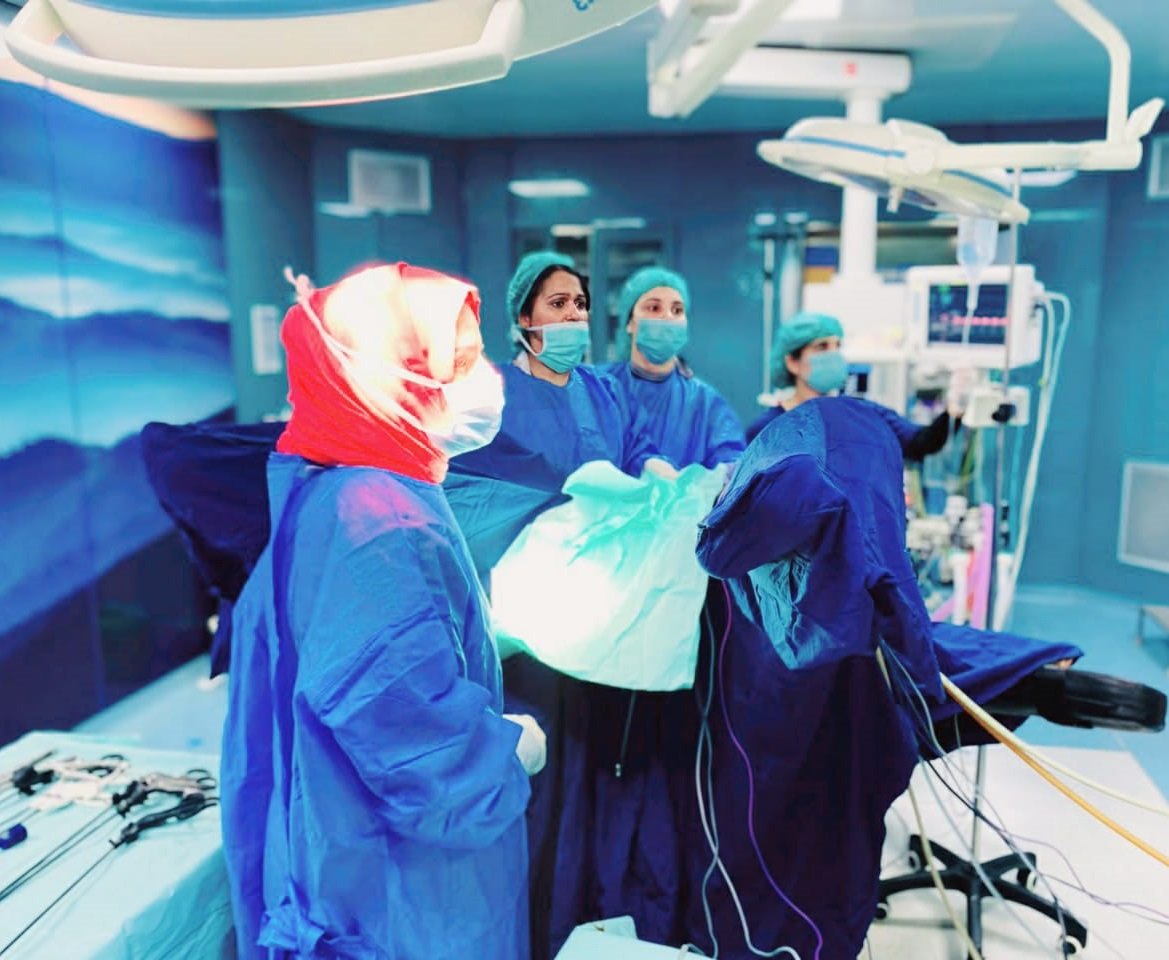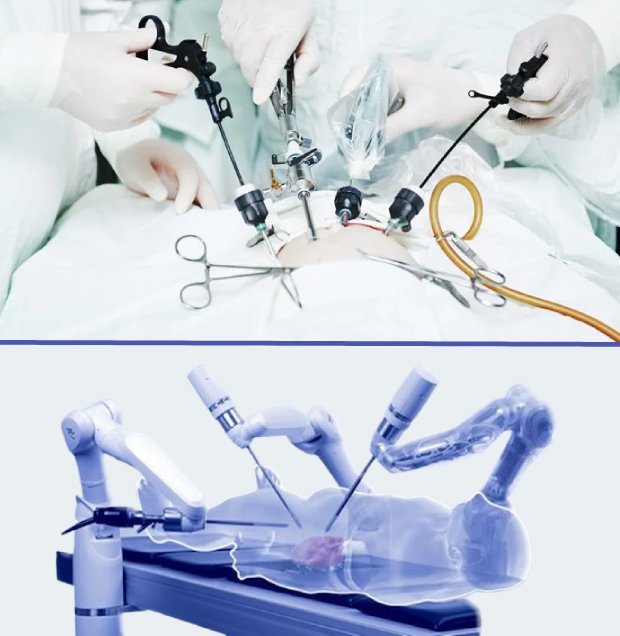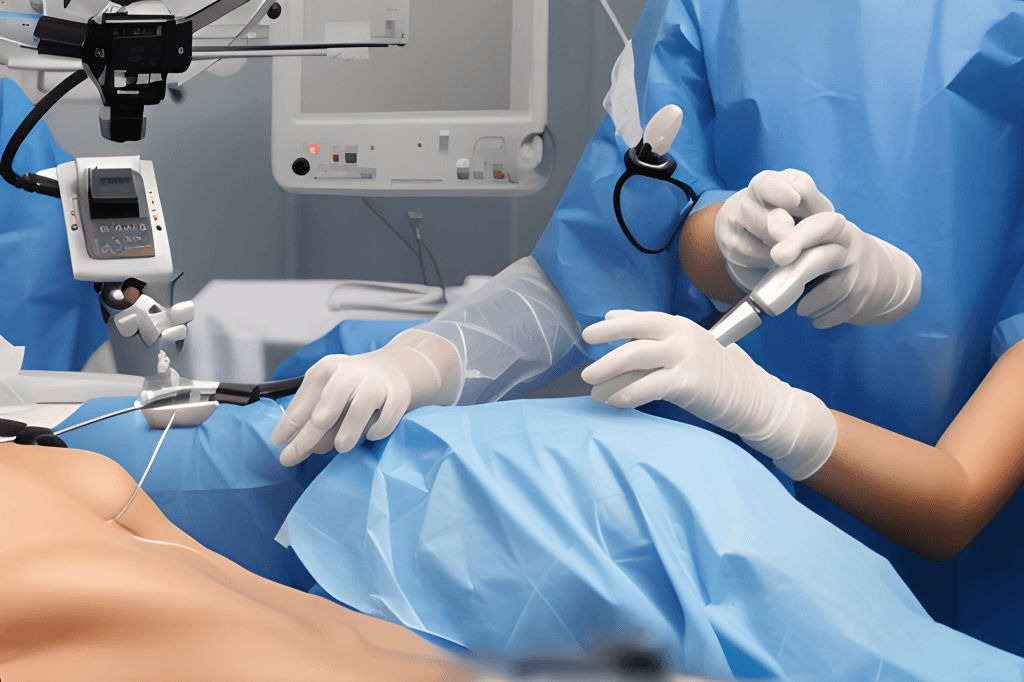Appendicitis Treatment
Home > Gynae Treatments > Appendicitis Treatment

Appendicitis is a medical condition characterized by inflammation of the appendix. The appendix is a small, finger-shaped pouch located in the lower right area of the abdomen, attached to the large intestine. Appendix is believed to play a role in the immune system.
Appendicitis occurs when the appendix becomes blocked, often due to the presence of stool, foreign objects, or swollen lymph nodes. The blockage can lead to the accumulation of mucus and bacteria within the appendix, resulting in inflammation and infection.
We are offering the finest medical care for appendicitis with our team of highly skilled and experienced doctors in Lahore. Our expert doctors possess extensive expertise in diagnosing and managing appendicitis cases promptly and effectively. With state of the art facilities and cutting edge technology at our disposal, we ensure accurate diagnoses and perform successful appendectomies in Lahore.
The symptoms of appendicitis can vary from person to person, but some common signs to watch out for include:
It's important to note that the symptoms of appendicitis can be similar to other medical conditions, such as urinary tract infections, gastritis, or ovarian cysts. However, if you or someone you know experiences severe abdominal pain or other symptoms consistent with appendicitis, it is crucial to seek immediate medical help. Appendicitis is a medical emergency, and prompt diagnosis and treatment are essential to prevent complications such as a ruptured appendix. Ruptures appendix can lead to a potentially life threatening condition called peritonitis. A Doctor will perform a physical examination, review symptoms, and may order additional tests like blood tests, ultrasound, or CT scan to confirm the diagnosis and determine the appropriate treatment of appendix.

Here's how appendicitis is usually diagnosed:
It's worth noting that diagnosing appendicitis can be challenging, especially in atypical cases or when the symptoms are not clearly indicative. Sometimes, other conditions, such as gastroenteritis, kidney stones, or ovarian cysts, may mimic the symptoms of appendicitis.
If appendicitis is suspected, surgical consultation is often recommended promptly. In many cases, if the diagnosis is uncertain, surgery may be the definitive way to diagnose and treat the condition simultaneously. The surgical procedure to remove the appendix is called an appendectomy, and it is typically done laparoscopically, using small incisions and a camera for guidance.
The primary treatment for appendicitis is surgical removal of the inflamed appendix, a procedure known as an appendectomy. This is typically the standard of care for most cases of appendicitis and is often performed as soon as the diagnosis is made or strongly suspected. The surgery can be done as an emergency procedure in acute cases or on an elective basis if the inflammation is less severe or has resolved temporarily with antibiotics.
Laparoscopic Appendectomy is the most common approach nowadays. It is a minimally invasive procedure where the surgeon makes several small incisions in the abdomen and inserts a laparoscope (a thin, lighted tube with a camera) and other surgical instruments to remove the appendix. The advantages of laparoscopic surgery include smaller incisions, shorter recovery time, low infection rate and less postoperative pain.
In some cases where the diagnosis is uncertain or the inflammation is not too severe, a short course of antibiotics may be given before surgery to reduce inflammation and infection. However, in most cases of acute appendicitis, surgery is the preferred and definitive treatment.
The recovery period is usually relatively quick, and most people can resume normal activities within a few weeks.
If an appendectomy is not performed promptly when necessary, the inflamed appendix may rupture, leading to a serious condition called peritonitis, where the infection spreads throughout the abdominal cavity. Peritonitis requires more aggressive treatment, including stronger antibiotics and drainage of any abscesses that may have formed.
In summary, the treatment of appendicitis involves timely surgical removal of the inflamed appendix through an appendectomy. It is crucial to seek medical attention promptly.

We take great pride in having the finest laparoscopic surgeon to treat appendicitis in Lahore. Our highly skilled and experienced specialist is at the forefront of laparoscopic surgical techniques, ensuring optimal outcomes and faster recoveries for patients. Our surgeon performs minimally invasive laparoscopic appendectomies with precision and expertise. Patients can trust in the hands of our proficient surgeon, who is dedicated to providing the highest quality of care and ensuring the best possible results for those facing appendicitis in Lahore. With our best laparoscopic surgeon in Lahore, we offer unparalleled medical services in the treatment of appendicitis in Lahore.
Contact UsCopyright @ . Design By Blizin Technologies